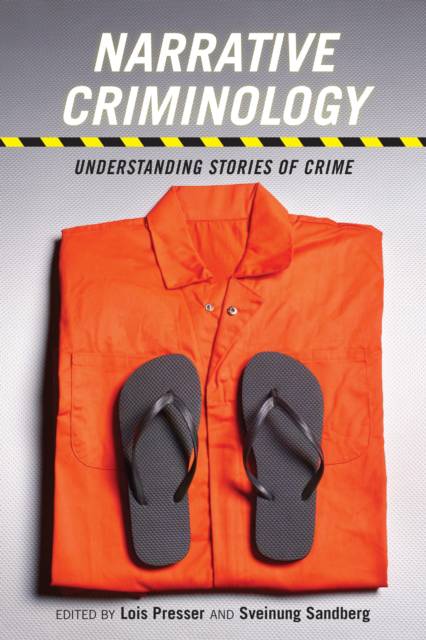
- Retrait gratuit dans votre magasin Club
- 7.000.000 titres dans notre catalogue
- Payer en toute sécurité
- Toujours un magasin près de chez vous
- Retrait gratuit dans votre magasin Club
- 7.000.0000 titres dans notre catalogue
- Payer en toute sécurité
- Toujours un magasin près de chez vous
Narrative Criminology
Understanding Stories of Crime
62,95 €
+ 125 points
Description
Explores the role of stories in criminal culture and justice systems around the world
Stories are much more than a means of communication--stories help us shape our identities, make sense of the world, and mobilize others to action. In Narrative Criminology, prominent scholars from across the academy and around the world examine stories that animate offending. From an examination of how criminals understand certain types of crime to be less moral than others, to how violent offenders and drug users each come to understand or resist their identity as 'criminals', to how cultural narratives motivate genocidal action, the case studies in this book cover a wide array of crimes and justice systems throughout the world. The contributors uncover the narratives at the center of their essays through qualitative interviews, ethnographic fieldwork, and written archives, and they scrutinize narrative structure and meaning by analyzing genres, plots, metaphors, and other components of storytelling. In doing so, they reveal the cognitive, ideological, and institutional mechanisms by which narratives promote harmful action. Finally, they consider how offenders' narratives are linked to and emerge from those of conventional society or specific subcultures. Each chapter reveals important insights and elements for the development of a framework of narrative criminology as an important approach for understanding crime and criminal justice. An unprecedented and landmark collection, Narrative Criminology opens the door for an exciting new field of study on the role of stories in motivating and legitimizing harm.Spécifications
Parties prenantes
- Editeur:
Contenu
- Nombre de pages :
- 336
- Langue:
- Anglais
- Collection :
- Tome:
- n° 17
Caractéristiques
- EAN:
- 9781479823413
- Date de parution :
- 10-07-15
- Format:
- Livre broché
- Format numérique:
- Trade paperback (VS)
- Dimensions :
- 147 mm x 230 mm
- Poids :
- 467 g

Les avis
Nous publions uniquement les avis qui respectent les conditions requises. Consultez nos conditions pour les avis.





